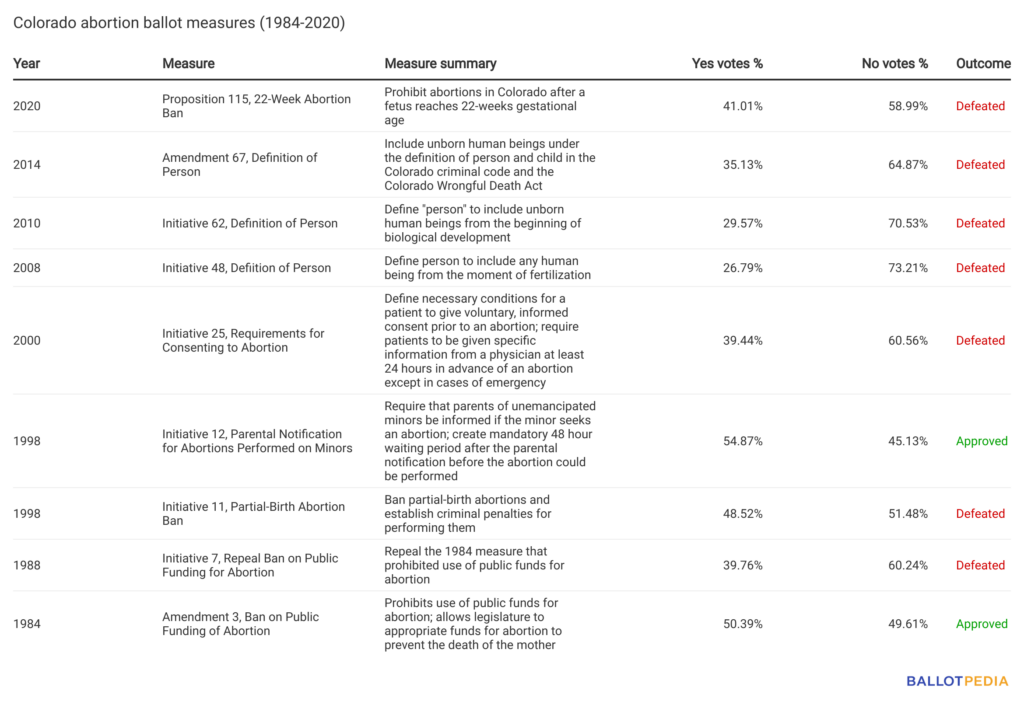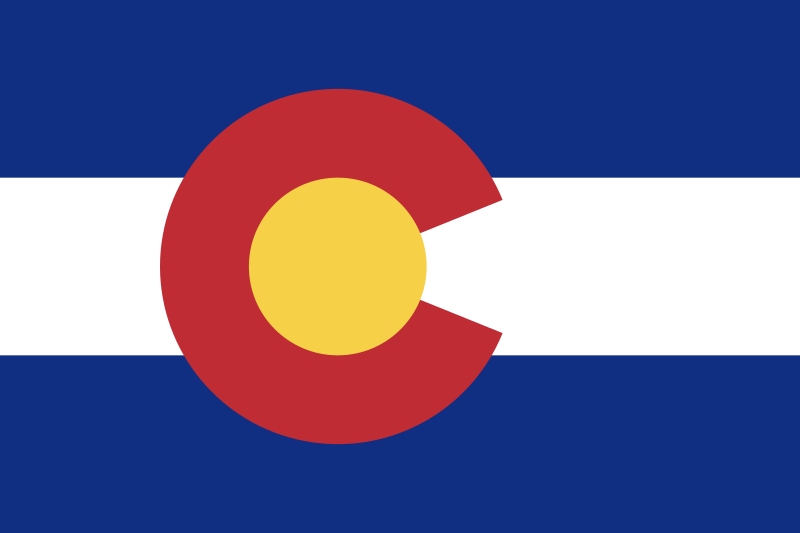Voters in Colorado have seen more abortion-related ballot measures than those in any other state. There have been nine on the ballot since the first in 1984, and this year could increase that number to 10. The state with the next highest number is Oregon with six.
On April 18, the campaign Coloradans for Protecting Reproductive Freedom submitted 230,000 signatures for a ballot initiative to provide a state constitutional right to abortion. At least 124,238 of the submitted signatures need to be verified for the initiative to appear on the ballot on Nov. 5, 2024.
The initiative would not just be the tenth related to abortion in Colorado, it would repeal the first one ever proposed and passed in the state: Colorado Amendment 3, passed in 1984. Amendment 3 prohibited the use of public funds, such as Medicaid, for abortions. It passed with 50.39% of the vote. In 1988, another initiative attempted to repeal Amendment 3 but failed, with 60.24% voting ‘No’.
The proposed ballot initiative would add the following to the Colorado Constitution: “The right to abortion is hereby recognized.” It would also state that the government shall not “deny, impede, or discriminate against the exercise” of the right to abortion, including prohibiting health insurance coverage for abortion.
In 1984, Coloradans voted 50.4% to 49.6% to ban public funding of abortion except for cases where the mother’s life is in danger. The measure was challenged in 1988 and was upheld by voters. In 1998, Coloradans voted 55% to 45% to require parents to be notified if their minor children seek an abortion and voted 51% to 49% to reject a ban on partial-birth abortion. In 2000, Colorado voters rejected a measure that would have required women to be given certain information from a physician at least 24 hours in advance of an abortion. Coloradans rejected three measures (in 2008, 2010, and 2014) that would have defined person to include fetuses or unborn human beings. In 2020, voters rejected an initiative that would have banned abortions after 22 weeks.

Colorado now has a 55% vote requirement for constitutional amendments, so the right-to-abortion amendment would require a 55% vote to be approved. The supermajority vote requirement was adopted in 2016.
Karen Middleton, president of Cobalt and co-chair of Coloradans for Protecting Reproductive Freedom, said, “Because we have historically been a state without restrictions on access to abortion, we’ve been a place of last resort for many people who could not get an abortion in their state. By expanding that right, we become an important piece of the national fabric. We’re able to respond to crises created by the bans. We recognize this has created a healthcare crisis for people across the country.”
A campaign for a proposed initiative to ban abortion in Colorado had also been gathering signatures but announced on Apr. 18 that they did not collect enough to qualify for the ballot. Faye Barnhart of Colorado Life Initiative said, “God gave us a choice between life and death for our state. Many didn’t have the faith or vision to see this amazing window of opportunity to lead our state to choose life. We mourn the loss of these children’s lives because we didn’t do everything we could to save them.”
Following the 2022 Dobbs v. Jackson Women’s Health Organization U.S. Supreme Court decision that overturned Roe v. Wade, four states adopted ballot measures creating a state constitutional right to abortion: California, Michigan, Ohio, and Vermont. Three measures to create state constitutional rights to abortion are certified to appear on the 2024 ballot in Florida, Maryland, and New York. Measures have been proposed to establish a state constitutional right to abortion have been proposed targeting the 2024 ballot in eight other states.
Additional reading:


